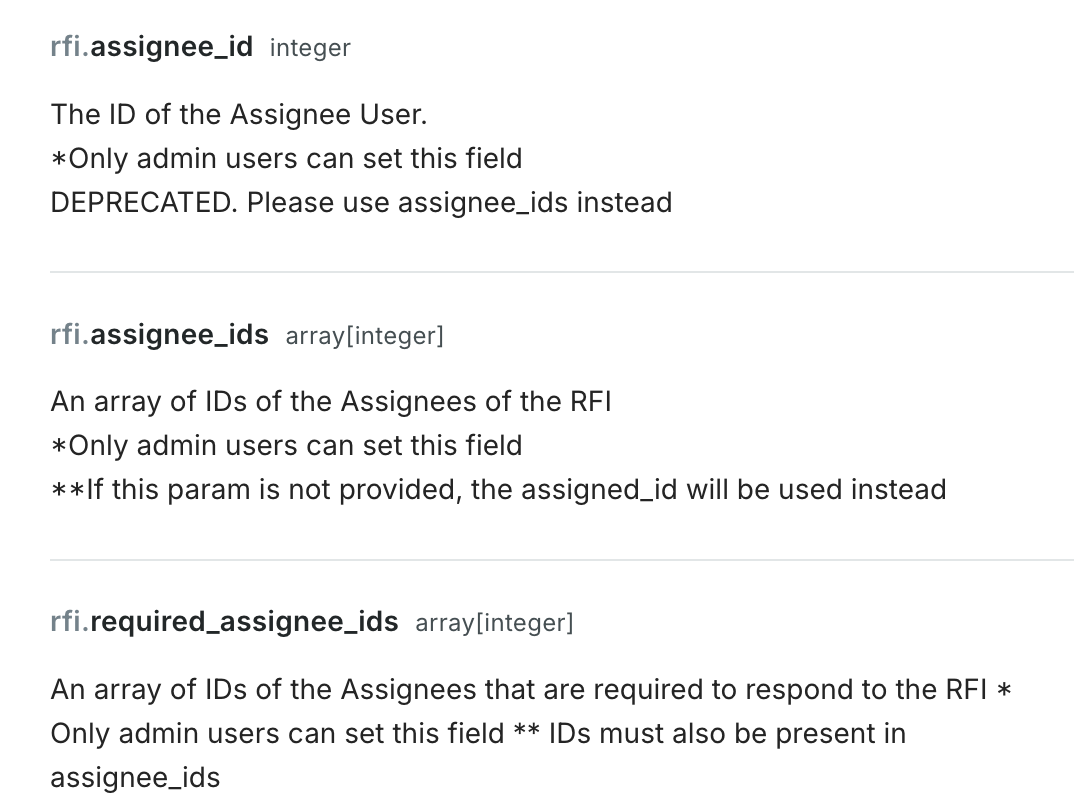I have noticed that the fields required for creating a new RFI in Zapier are different from the fields in the Procore system.
Specifically, in the Procore interface, I am not required to input an assignee when creating a new RFI. However, in the Zapier integration, the assignee field is required. When I run a test in Zapier, it consistently returns the error "Error: assignee_ids invalid".
I'm not sure if this error is occurring because Procore does not actually require an assignee to be specified when creating a new RFI, unlike the Zapier integration.
Could someone please look into this discrepancy and let me know the reason for the difference in required fields between the two systems? I want to ensure the Zapier integration is set up correctly and is in sync with the Procore RFI creation process.
Thank you for your assistance.







